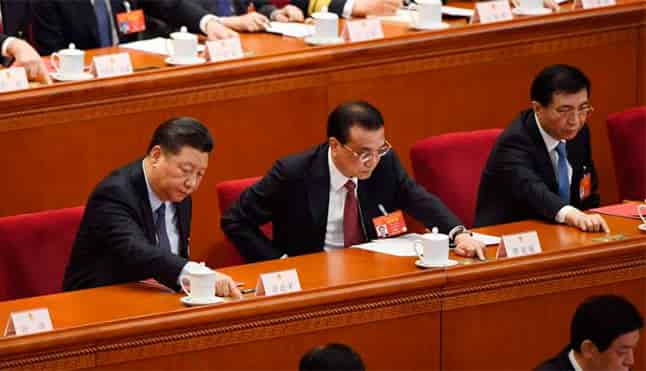
The People's National Assembly (ANP), the Legislative Assembly of China, today approved the new unified foreign investment law, the star project of the agency's annual session, which closes today in Beijing. During the last day of the ANP, which began on day 5, 2,929 deputies voted in favor of the approval, while 8 opposed and 8 abstained, according to the state news agency Xinhua, which highlighted the "overwhelming majority" who supported the decision.
This new law will replace the three that currently regulate the subject. The original project dates from 2015, but the Chinese authorities accelerated their processing by the end of 2018 due, according to experts, to Beijing believes that this new regulation can meet demands presented by the United States in the framework of negotiations to resolve the trade dispute between both countries.
The president of the ANP, Li Zhanshu, delivered a speech to close the session in which he called it a "fundamental law" to "promote high-level openness in this new era."
"We must thoroughly study this law and put it in place to facilitate investment," he added.
According to Xinhua, the decision to approve it "demonstrates the determination of the country (China) to seek a new stage of high-level opening."
The dispatch of the official media pointed out: "With unified provisions for the entry, promotion, protection and management of foreign investment, it is a new and fundamental law for foreign investment in China."
"Its objective is to improve the transparency of policies on foreign investment and ensure that domestic and foreign companies are subject to a series of unified rules that compete on equal terms," he added.
The law had two drafts, but the news agency did not specify if the approved text is the result of modifications to the second of them.
One of the great novelties is precisely the mention of "national treatment of foreign investments", according to the text of the second draft, presented at the end of January.
However, the US Chamber of Commerce in China was skeptical of the project as "still quite generic" and did not go into specific details, a complaint shared by the Chamber of Commerce of the European Union (EU) in China.
After reviewing the second draft, the European Chamber considered that it was written with "broad terms and vague language", so it called for a "clarification" that prevents "there is space for the arbitrary application of the law."
In a subsequent press conference, Chinese Premier Li Keqiang said that "in the coming months" will be implemented "regulations to protect the rights of foreign investors" as a "mechanism of information and transparency."
Also, regarding the protection of intellectual property -one of the main demands of the United States-, Li added that the authorities will make "revisions on the protection of intellectual property" and will introduce "a compensation mechanism for infractions" in this matter.
"We also hope that the foreign governments have an objective view on the investment of Chinese companies and their foreign partners," said the president, who referred to the establishment of equality between local and foreign companies as a situation of "neutral competition."
During the last day of the ANP other documents were also approved, such as the Supreme Court's work reports or state and local budgets.
El Mundo
